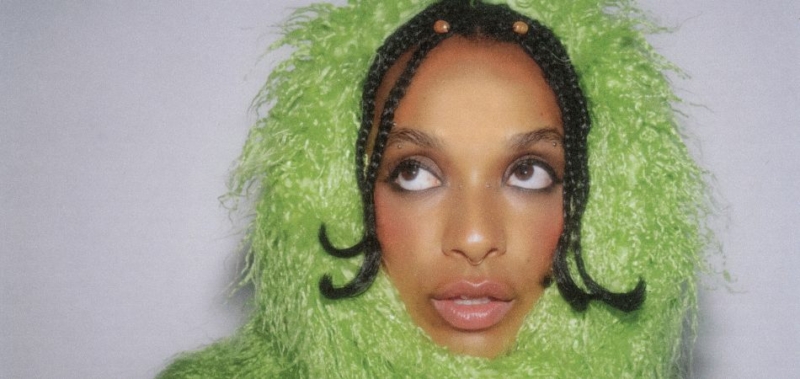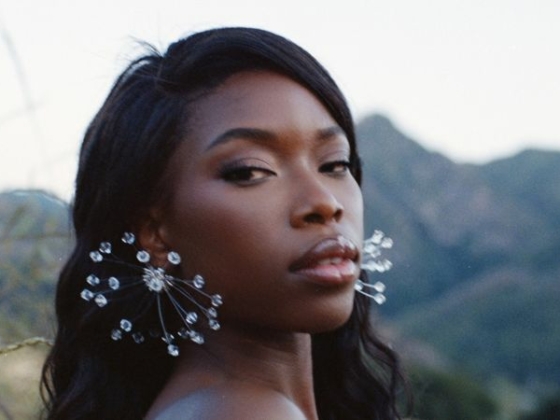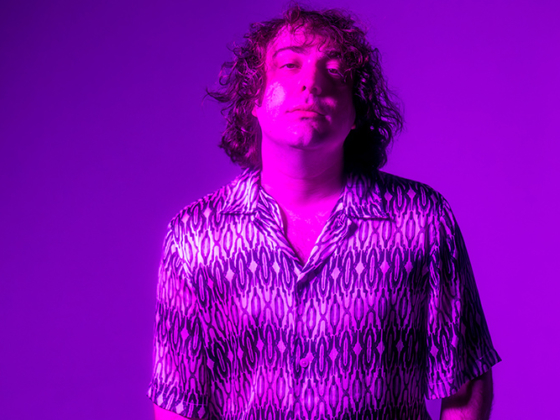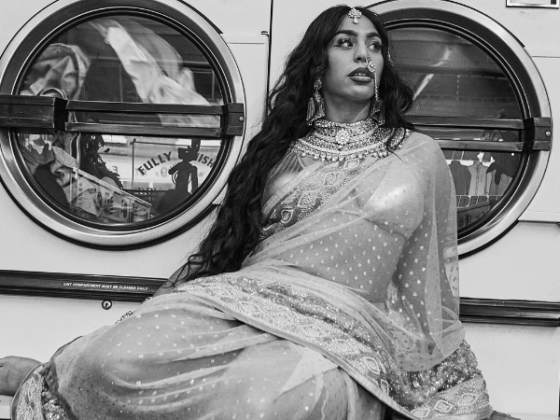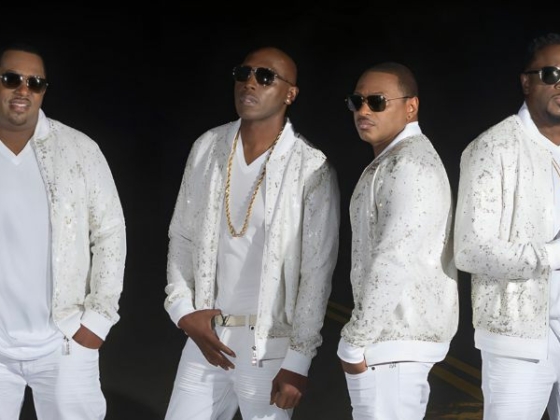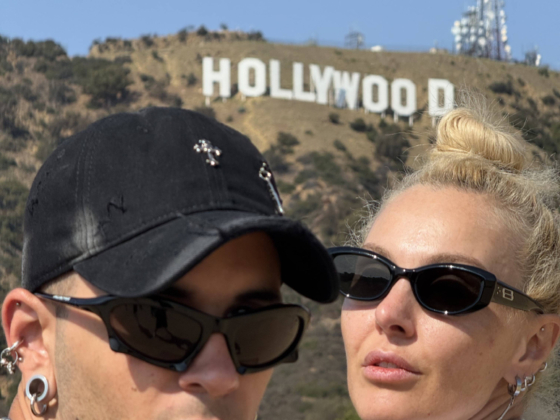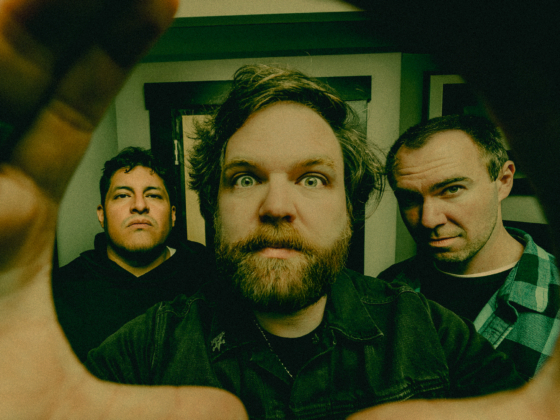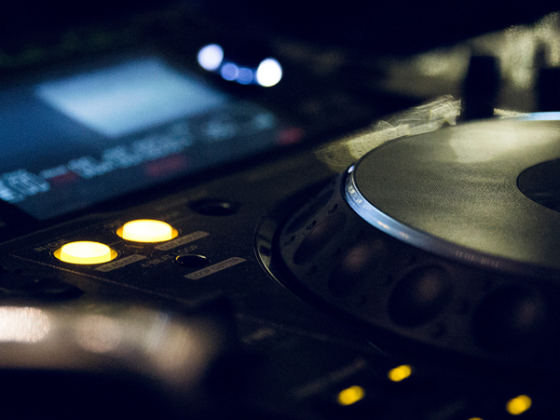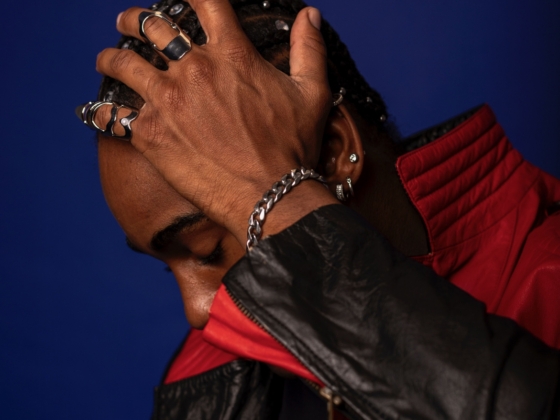Montréal-based Magi Merlin, who grew up in Saint-Lazare, Canada, brings an otherworldly aura and thought-provoking lyricism to her gritty, punk-tinged R&B and neo-soul.
Merlin’s music tackles political themes, racial identity, love, and personal growth, fearlessly blending the rebellious energy of punk, house, electronic, and rock with the soulful depth of R&B and neo-soul.
At this year’s Festival De Musique Émergente (FME), Merlin shared insights into her creative process, how she balances vulnerability with artistic expression, and what she hopes listeners take away from her performances—from festival stages to dream collaborations, she opens up about what it means to truly embrace her musical identity.
How would you describe your musical identity in your own words?
Okay, well, lately I’ve been using a genre that the producer I work with, Funkywhat, and I coined as 'Broken R&B.'
There are roots that many people will recognize—alternative R&B and neo-soul—which is currently what most people would probably categorize me under.
But I feel like that label doesn’t fully describe what’s happening, because there’s so much more going on.
There are influences from house, electronic, punk, and sometimes even rock music. My voice can be harmonic or sultry, depending on the song.
So yeah, that’s what I’ve been calling it, and now I’m fully embracing it as my own. I love when people find it weird or don’t know where to place it because I don’t belong to just one thing.
It’s definitely not contemporary R&B, which can feel a bit sanitized. In terms of texture, there’s a specific polished sound that much of R&B has, which is beautiful, but I like when a punk edge comes through—distortion, grittiness—that vibe is something I want to maintain throughout my work.
Even when the music is softer, I like there to be a little bit of grit in there.
Where do you draw inspiration when creating or writing new music, and how does it influence your lyrics and production?
So lately, I've been having to articulate where a lot of the topics in my music come from, just for myself, so that I can understand it better.
What I've noticed is that there’s a lot of introspection, but also a lot of commentary on what’s happening in the world—obviously through my lens, because I really don’t have any other lens to work from.
I talk a lot about my political beliefs or things I think about.
I have a song I wrote more recently—it’s not released at all yet—where I was exploring the responsibility of a musician when it comes to the world and what’s happening in it. People might call it political, but it’s really just about the experience of being a human being and figuring out where I draw the line for myself: how to feel like I’m doing something without taking on too much responsibility, because otherwise, I could get destroyed by it.
Almost like that becomes your niche.
I’m basically always thinking about what’s going on and absorbing my surroundings—like everybody does.
I tend to comment on that a lot in my music rather than just thinking about it alone or talking about my own direct personal experiences. It’s not really intentional, but my work always seems to broaden and extend beyond just me in a way
From a production standpoint, do you feel like you emphasize that as well—almost like highlighting an imperfect, cataclysmic exposure?
Totally. In particular, the lyrics speak about the horrible things that are happening and how distressing they are.
But in terms of production, there’s a juxtaposition. It’s way more dancey, more optimistic, and that’s how I want to approach all the horrible stuff that’s going on.
I’m really trying to find a balance in my brain so I can keep going. I don’t want to be presumptuous, but I feel like a lot of people might need that too—a kind of “no doomerism,” you know what I mean?
A lot of the time, we’re saying, “Oh, it’s already over.” It’s so shitty, and it may never not be shitty, but it’s not over until it’s over. So stop crying.
It’s very hard to feel optimistic, especially when the world is the way it is. But I love that because we already get enough doom from scrolling.
There’s no shortage of horrible things you can see or hear about. That’s why I’m like, okay, if there’s that extreme, there has to be an opposite end of the spectrum. I’m really trying to tap into the other end—the “we got this, we can do it” side.
I don’t have the answers, of course, but I want to, and I’m really open to hearing them.
Performing at FME is a big moment—what excites you about sharing your music with this crowd, and what do you hope they take away?
Yeah, I mean, I always find that festivals—not even just in Quebec, but all over, even in smaller spots that people don’t necessarily always gravitate toward—will have a festival or something.
They kind of bring a lot of people from different places in the world.
I think that crowd is very hungry for music, for being together, and for having a good time, because it doesn’t necessarily happen around them all the time.
So I really like playing for crowds like that because it’s very infectious and really high energy—well, it can be, at least. I don’t want to put expectations on anybody, but yeah, I definitely feel like that’s the most fun.
Again, no expectations—it’s just kind of fun to be in a new place. I’ve never played here, and it’s interesting to see who I am at the time and what people bring.
There’s an openness to festivals, though, because people come from everywhere. I feel like there’s more tolerance and openness at festivals than maybe even in a small town, because there are people coming from all over.
Collaborations are key for any artist—are there dream collaborators you hope to work with or almost have?
I really like Girl Ultra. I just saw her in Montreal—she's super amazing. We were hanging out with her drummer after the show.
She's really fantastic, and just thinking, like, “girl, maybe we should… yeah, you know?” That would be really cool. She's such a fantastic performer, fun to watch play. That's also really inspirational for me as an artist.
Who else? I really like Rosalía—that would be amazing.
I always reference Frank Ocean, too, because I attribute a lot of my inspiration in terms of writing to him. I feel like collaborating with him would be a really nice, full-circle, universal moment.
How do you approach balancing vulnerability and creativity in your work, sharing personal stories while engaging with your audience?
I'm not really scared of being vulnerable.
Well, sometimes I have to make a point of talking about things that have happened in my life.
To me, something that could have happened yesterday—or whatever—because a lot of the time, there’s a lot of metaphor in my writing, or the way I’m processing things that are way bigger than me versus smaller excerpts of my life, which I think would be interesting to explore as a writer.
I guess I would like to do more storytelling, like Phoebe Bridgers, more narrative-driven.
Yeah, I think that’s a really lovely way to write. I don’t do that off the rip most of the time–it’s not necessarily my style, but I’m really intrigued by it.
I think there are moments in songs like that where I feel so deeply because someone is just letting me in, and I’d be really down to explore that. That’s probably a new venture for me when the time comes.
For first-time listeners at FME, how do you want them to feel—free, alive, or something else?
I want people to feel strong and powerful. I think, in terms of how we all exist in society, we often feel so teensy and useless, especially in the face of things we really don’t feel we have any control over.
I think music can serve as a way to feel free or alive, and it can also make you feel empowered and strong.
How has your writing and creative process changed since you first started?
I’ve started producing, which is a newer aspect of my music—writing musically, not just with words, but through production.
I began producing on my own two years ago. That’s actually where “see!igetit” came from; I started it by myself. Being able to articulate my ideas musically has been really rewarding, and building on that is fun too.
Once I, like, got rid of the stress I associate with it, it’s like, “No, it’s fun.”
Then with writing, yeah, I definitely feel like referencing Frank Ocean. I think there was a before I knew about him, and then an after.
I would describe him more as an R&B musician, but he has this way with words where he's able to fit a lot of information within a song, and it's so beautiful. It's similar to a rapper or something.
In terms of a topic of music, I learned a lot from Frank Ocean’s writing. Since then, I feel like I've been getting better and quicker.
I feel way more confident in the style that I am cultivating for myself, maybe.
If I’m learning a new technique, it’s more like I don’t second-guess myself.
Any artists you’ve been obsessed with lately—ones you can’t stop replaying?
I love this duo, Ca7riel & Paco Amoroso.
Their album Papa—I think they blew up from Tiny Desk during Latin Week or something. Their Tiny Desk was fantastic; I'm pretty sure they're trained jazz musicians or something like that.
But seriously, so, so, so good. The music, the mix, the layers—everything sounds really nice.
Their old album was more aligned with rap, reggaeton, and electronic sounds. After Tiny Desk, they incorporated more live instruments, which I thought was really nice.
Also, Angélica Garcia, and we were listening to some No Doubt recently.
Are there any upcoming projects you’re excited about right now?
Yes, an LP. I'm so excited for it. That’s one thing we're working on. Then there's a single coming out in September, an Idles cover.
Idles put on such a good live show—so gripping. I don’t know, I love it. I’m able to see different ways people can be captivating: there’s dancing, there’s, you know, sex appeal sometimes.
But with them, it’s more about rugged intensity, where it’s just like, “I’m watching you.”
What do you want listeners to feel when they hear your music? Do you aim to inspire, comfort, challenge, or something else entirely?
Okay, I would say: challenge, inspire, and comfort—in that order.
Is there any advice you’d like to leave for artists who are just starting out?
There’s no way it can work if you don’t believe it will. You should be absolutely delusional—because that’s when you know for sure it’s going to work.

